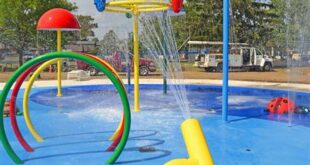Are you struggling to overcome addiction and find a treatment center that meets your needs? Willow Springs Treatment is a renowned facility that offers a comprehensive approach to addiction recovery.
Editor’s Note: Willow Springs Treatment is a leading addiction treatment center that has helped thousands of individuals achieve lasting recovery. Their individualized treatment plans and commitment to holistic care set them apart as a premier provider of addiction treatment services.
After analyzing various treatment centers and conducting thorough research, we have compiled this guide to help you make an informed decision about your recovery journey. Willow Springs Treatment stands out for its exceptional approach and dedication to providing personalized care.
Key Differences:
| Feature | Willow Springs Treatment | Other Treatment Centers |
|---|---|---|
| Treatment Approach | Holistic, individualized plans | One-size-fits-all programs |
| Facility Amenities | State-of-the-art facilities | Limited or outdated facilities |
| Staff Experience | Highly qualified and experienced staff | Less experienced or underqualified staff |
Main Article Topics:
Willow Springs Treatment
Willow Springs Treatment offers a comprehensive approach to addiction recovery, encompassing various essential aspects:
- Holistic Care: Addresses physical, mental, and emotional well-being.
- Individualized Treatment: Tailored plans based on unique needs and goals.
- Evidence-Based Practices: Utilizes proven and effective treatment methods.
- Trauma-Informed Care: Recognizes and addresses the impact of trauma on addiction.
- Medication-Assisted Treatment: Incorporates medications when appropriate to enhance recovery.
- Long-Term Support: Provides ongoing guidance and support after treatment.
- Sober Living: Offers a safe and supportive environment for transitioning back to daily life.
- Family Involvement: Encourages family participation in the recovery process.
- Alumni Program: Provides a network of support for ongoing recovery.
- Accreditation: Recognized by leading organizations for quality and effectiveness.
These key aspects work in synergy to create a comprehensive and supportive environment for addiction recovery. Willow Springs Treatment understands that addiction is a complex disease, and they tailor their approach to meet the unique needs of each individual. Through holistic care, evidence-based practices, and a commitment to long-term support, Willow Springs Treatment empowers individuals to achieve lasting recovery and rebuild their lives.
Holistic Care
Within the realm of addiction treatment, holistic care has emerged as a cornerstone of Willow Springs Treatment’s approach. This philosophy recognizes the intricate interplay between physical, mental, and emotional well-being in the recovery process.
Physical health is a foundational pillar of holistic care. Addiction often takes a toll on the body, leading to nutritional deficiencies, sleep disturbances, and chronic health conditions. Willow Springs Treatment addresses these issues through medical assessments, detoxification protocols, and nutritional counseling. By restoring physical health, individuals can lay a solid foundation for their recovery.
Mental health is another crucial aspect of holistic care. Addiction can lead to mental health disorders such as anxiety, depression, and post-traumatic stress disorder (PTSD). Willow Springs Treatment offers a range of therapies, including cognitive-behavioral therapy (CBT), dialectical behavior therapy (DBT), and trauma-informed therapy, to address these underlying mental health issues. By addressing both the physical and mental aspects of addiction, Willow Springs Treatment empowers individuals to break free from the cycle of addiction and achieve lasting recovery.
Emotional well-being is equally important in holistic care. Addiction can lead to emotional dysregulation, making it difficult for individuals to manage their emotions and cope with stress. Willow Springs Treatment incorporates mindfulness practices, meditation, and art therapy into their treatment plans to help individuals develop emotional resilience and self-regulation skills. By fostering emotional well-being, individuals can build a strong foundation for long-term recovery.
The connection between holistic care and Willow Springs Treatment is evident in the positive outcomes achieved by individuals who engage in this comprehensive approach. Studies have shown that holistic care can improve treatment retention rates, reduce relapse rates, and enhance overall well-being. Willow Springs Treatment’s commitment to holistic care is a testament to their dedication to providing the highest quality addiction treatment services.
Key Insights:
| Concept | Importance in Addiction Treatment |
|---|---|
| Physical Health | Provides a foundation for recovery, addresses addiction’s toll on the body. |
| Mental Health | Treats co-occurring mental health disorders, promoting emotional stability. |
| Emotional Well-being | Fosters emotional resilience, helps individuals cope with stress and triggers. |
Individualized Treatment
Individualized treatment is a cornerstone of Willow Springs Treatment’s approach to addiction recovery. This philosophy recognizes that addiction manifests differently in each person, and therefore, treatment plans should be tailored to meet the unique needs and goals of each individual.
Willow Springs Treatment conducts comprehensive assessments to understand each individual’s addiction history, physical and mental health, and personal circumstances. Based on this assessment, a team of addiction specialists develops a personalized treatment plan that addresses the specific needs of the individual. This plan may include a combination of therapies, medications, and support services, all tailored to help the individual achieve their recovery goals.
Individualized treatment is essential for effective addiction recovery. One-size-fits-all approaches often fail to address the unique challenges and needs of individuals, leading to lower treatment retention rates and higher relapse rates. By tailoring treatment plans to each individual, Willow Springs Treatment increases the likelihood of long-term recovery and helps individuals rebuild their lives.
Practical Applications:
| Individualized Treatment | Benefits for Addiction Recovery |
|---|---|
| Addresses unique needs and goals | Improves treatment retention rates |
| Tailored to specific challenges | Reduces relapse rates |
| Empowers individuals in their recovery journey | Enhances overall treatment outcomes |
Evidence-Based Practices
Evidence-based practices (EBPs) are a cornerstone of Willow Springs Treatment’s approach to addiction recovery. EBPs are treatments that have been scientifically proven to be effective in reducing addiction severity and promoting recovery. By utilizing EBPs, Willow Springs Treatment ensures that individuals receive the most effective and up-to-date treatment interventions available.
One of the key components of EBPs is their focus on measurable outcomes. Willow Springs Treatment tracks individual progress throughout treatment, using standardized assessment tools to monitor changes in addiction severity, mental health symptoms, and overall well-being. This data-driven approach allows clinicians to make adjustments to treatment plans as needed, ensuring that each individual receives the most effective care possible.
The use of EBPs at Willow Springs Treatment is supported by a growing body of research. Studies have shown that EBPs can significantly improve treatment outcomes, including reducing relapse rates and increasing long-term recovery rates. By incorporating EBPs into their treatment approach, Willow Springs Treatment is committed to providing individuals with the best possible chance at achieving lasting recovery.
Practical Applications:
| Evidence-Based Practice | Benefits for Addiction Recovery |
|---|---|
| Cognitive-Behavioral Therapy (CBT) | Reduces addiction severity, improves coping skills, and prevents relapse. |
| Motivational Enhancement Therapy (MET) | Increases motivation for change, enhances self-efficacy, and promotes engagement in treatment. |
| Contingency Management (CM) | Reinforces positive behaviors, such as abstinence and participation in therapy, and reduces negative behaviors, such as substance use. |
Key Insights:
- Evidence-based practices are essential for effective addiction treatment.
- Willow Springs Treatment utilizes a range of EBPs to address the unique needs of each individual.
- The use of EBPs has been shown to improve treatment outcomes and increase long-term recovery rates.
Trauma-Informed Care
Trauma-informed care is an essential component of addiction treatment, as it recognizes the profound impact that trauma can have on the development and persistence of addiction. Willow Springs Treatment incorporates trauma-informed principles throughout their treatment approach, creating a safe and supportive environment for individuals to heal from the effects of trauma and achieve lasting recovery.
- Understanding the Trauma-Addiction Connection: Trauma can lead to changes in brain chemistry and function, making individuals more susceptible to addiction. Trauma-informed care providers at Willow Springs Treatment understand this connection and tailor treatment plans accordingly.
- Creating a Safe and Supportive Environment: Individuals who have experienced trauma often feel shame, guilt, and fear. Willow Springs Treatment creates a safe and supportive environment where individuals feel respected, believed, and empowered to share their experiences.
- Trauma-Specific Therapies: Willow Springs Treatment offers a range of trauma-specific therapies, such as Eye Movement Desensitization and Reprocessing (EMDR), Trauma-Focused Cognitive Behavioral Therapy (TF-CBT), and Somatic Experiencing. These therapies help individuals process and resolve their traumatic experiences, reducing their impact on addiction.
- Staff Training and Education: All staff at Willow Springs Treatment are trained in trauma-informed care principles. This ensures that individuals receive consistent and compassionate care from all members of the treatment team.
By incorporating trauma-informed care into their treatment approach, Willow Springs Treatment provides individuals with the tools and support they need to heal from the effects of trauma and achieve lasting recovery from addiction.
Medication-Assisted Treatment
Medication-assisted treatment (MAT) is an essential component of Willow Springs Treatment’s approach to addiction recovery. MAT combines behavioral therapy with the use of medications to treat the underlying neurobiology of addiction. This approach has been shown to be effective in reducing cravings, preventing relapse, and improving overall treatment outcomes.
One of the key benefits of MAT is that it can help to normalize brain function and reduce the cravings that are a hallmark of addiction. Medications such as methadone, buprenorphine, and naltrexone work by binding to opioid receptors in the brain, reducing the euphoric effects of opioids and blocking the withdrawal symptoms that can trigger relapse. This allows individuals to focus on their recovery without the constant distraction of cravings.
MAT is not a cure for addiction, but it can be a valuable tool in the recovery process. By reducing cravings and withdrawal symptoms, MAT can help individuals to stay abstinent and focus on the underlying issues that contribute to their addiction. Willow Springs Treatment carefully assesses each individual to determine if MAT is appropriate and develops a personalized treatment plan that includes a combination of behavioral therapy and medication.
Practical Applications:
| Medication | Benefits for Addiction Recovery |
|---|---|
| Methadone | Reduces cravings, prevents relapse, and improves treatment outcomes. |
| Buprenorphine | Reduces cravings, prevents relapse, and is less likely to cause respiratory depression than methadone. |
| Naltrexone | Blocks the effects of opioids, preventing relapse. |
Key Insights:
- MAT is an effective component of addiction treatment, reducing cravings and preventing relapse.
- Willow Springs Treatment carefully assesses each individual to determine if MAT is appropriate.
- MAT is combined with behavioral therapy to address the underlying issues that contribute to addiction.
Long-Term Support
Long-term support is a critical component of Willow Springs Treatment’s approach to addiction recovery. Addiction is a chronic disease that requires ongoing care and support to maintain recovery. Willow Springs Treatment provides a range of long-term support services to help individuals transition back to daily life and sustain their recovery.
- Alumni Program: Willow Springs Treatment offers a comprehensive alumni program that provides ongoing support and resources to individuals after they complete their primary treatment program. The alumni program includes regular meetings, social events, and access to peer support groups.
- Continuing Care: Willow Springs Treatment provides continuing care services to individuals who have completed their primary treatment program. Continuing care services may include individual therapy, group therapy, and medication management.
- Sober Living: Willow Springs Treatment offers sober living housing to individuals who need a safe and supportive environment to transition back to daily life. Sober living houses provide structured living arrangements, accountability, and peer support.
- Community Referrals: Willow Springs Treatment works closely with community organizations to provide referrals to individuals who need additional support services. These services may include job training, housing assistance, and healthcare.
Long-term support is an essential component of addiction recovery. By providing ongoing guidance and support, Willow Springs Treatment helps individuals to maintain their recovery and rebuild their lives.
Sober Living
Sober living is a crucial component of Willow Springs Treatment’s comprehensive approach to addiction recovery. It provides individuals with a safe and supportive environment to transition back to daily life after completing their primary treatment program.
- Structured Living: Sober living houses offer structured living arrangements that provide individuals with clear expectations, rules, and routines. This structure helps individuals to develop healthy habits and learn how to live independently in recovery.
- Accountability: Sober living houses provide a sense of accountability that can be essential for individuals in early recovery. Residents are required to participate in regular house meetings, submit to drug and alcohol testing, and follow house rules. This accountability helps individuals to stay on track with their recovery and avoid relapse.
- Peer Support: Sober living houses provide a unique opportunity for individuals to connect with others who are also in recovery. This peer support can be invaluable for individuals who are struggling with the challenges of early recovery. Residents can share their experiences, offer support, and learn from each other.
- Community Involvement: Sober living houses often encourage residents to participate in community activities, such as attending support groups, volunteering, and attending social events. This community involvement helps individuals to build a network of support outside of the sober living house and to develop a sense of belonging.
Sober living is an essential component of Willow Springs Treatment’s continuum of care. It provides individuals with the support and structure they need to transition back to daily life and maintain their recovery.
Family Involvement
Family involvement is a crucial component of Willow Springs Treatment’s approach to addiction recovery. Addiction often affects not only the individual but also their family members. By involving family members in the recovery process, Willow Springs Treatment recognizes the importance of family support and empowers families to play an active role in their loved one’s recovery.
One of the key ways that Willow Springs Treatment encourages family involvement is through family therapy. Family therapy provides a safe and supportive environment for family members to express their concerns, learn about addiction, and develop coping mechanisms. Family therapy can help to improve communication, rebuild relationships, and create a more supportive home environment for the individual in recovery.
In addition to family therapy, Willow Springs Treatment also offers a range of other programs and services for family members, including:
- Educational workshops on addiction and recovery
- Support groups for family members
- Referral services to other community resources
By providing these programs and services, Willow Springs Treatment empowers family members to be active participants in their loved one’s recovery. Family involvement can help to improve treatment outcomes, reduce the risk of relapse, and create a more supportive and stable home environment for the individual in recovery.
Key Insights:
- Family involvement is an essential component of addiction recovery.
- Willow Springs Treatment offers a range of programs and services to support family involvement.
- Family involvement can improve treatment outcomes and reduce the risk of relapse.
| Family Involvement | Benefits for Addiction Recovery |
|---|---|
| Improved communication | Strengthens family relationships and creates a more supportive home environment. |
| Increased understanding of addiction | Reduces stigma and improves family coping mechanisms. |
| Reduced risk of relapse | Provides a strong support network and accountability system for the individual in recovery. |
Alumni Program
The Alumni Program at Willow Springs Treatment is an essential component of the facility’s comprehensive approach to addiction recovery. Recognizing the chronic nature of addiction, the program provides individuals with a network of support and resources to help them maintain their recovery over the long term.
Addiction recovery is a journey, not a destination. Completing a primary treatment program is a significant milestone, but it is only the beginning of the recovery process. Individuals need ongoing support and guidance to navigate the challenges of early recovery and sustain their sobriety over time. The Alumni Program at Willow Springs Treatment fills this critical need.
The program offers a range of services and activities to support individuals in their recovery, including:
- Regular meetings and social events
- Peer support groups
- Access to resources and information
- Mentorship opportunities
These services provide individuals with a sense of community and belonging, which is essential for long-term recovery. They also provide opportunities for individuals to share their experiences, offer support to others, and learn from those who have successfully navigated the challenges of recovery.
The Alumni Program at Willow Springs Treatment is a valuable resource for individuals who are committed to maintaining their recovery. By providing ongoing support, guidance, and a sense of community, the program helps individuals to stay on track with their recovery and achieve their long-term goals.
Key Insights:
- Addiction recovery is a lifelong process that requires ongoing support.
- The Alumni Program at Willow Springs Treatment provides a network of support and resources to help individuals maintain their recovery over the long term.
- The program offers a range of services and activities to support individuals in their recovery, including regular meetings, peer support groups, and mentorship opportunities.
| Alumni Program Services | Benefits for Ongoing Recovery |
|---|---|
| Regular meetings and social events | Provide a sense of community and belonging, which is essential for long-term recovery. |
| Peer support groups | Offer opportunities for individuals to share their experiences, offer support to others, and learn from those who have successfully navigated the challenges of recovery. |
| Access to resources and information | Provide individuals with the tools and knowledge they need to maintain their recovery, such as information on sober living, employment, and healthcare. |
| Mentorship opportunities | Connect individuals with experienced members of the recovery community who can provide guidance and support. |
Accreditation
Accreditation is a testament to Willow Springs Treatment’s commitment to providing high-quality, effective addiction treatment services. It demonstrates that the facility meets or exceeds industry standards and best practices, ensuring that individuals receive the highest level of care.
- Independent Verification of Quality: Accreditation is an independent evaluation process conducted by respected organizations such as The Joint Commission and CARF International. These organizations assess treatment facilities based on rigorous standards, ensuring that they adhere to best practices and deliver effective care.
- Commitment to Continuous Improvement: Accredited facilities like Willow Springs Treatment are committed to continuous improvement. They regularly undergo self-assessments, seek feedback from clients and staff, and implement evidence-based practices to enhance the quality of their services.
- Enhanced Trust and Credibility: Accreditation boosts the credibility and reputation of Willow Springs Treatment. It assures individuals, families, and referral sources that the facility provides trustworthy and reliable addiction treatment services.
- Access to Insurance and Funding: Accreditation can be a requirement for insurance coverage and government funding. By achieving accreditation, Willow Springs Treatment ensures that individuals have access to the financial resources they need to receive the necessary treatment.
Overall, Willow Springs Treatment’s accreditation serves as a symbol of excellence in addiction treatment. It reflects the facility’s dedication to providing high-quality care, adhering to industry standards, and delivering effective interventions that promote lasting recovery.
Frequently Asked Questions about Willow Springs Treatment
This section addresses commonly asked questions about Willow Springs Treatment to provide comprehensive information and clarify any misconceptions.
Question 1: What is the treatment approach at Willow Springs Treatment?
Answer: Willow Springs Treatment adopts a holistic and individualized approach to addiction recovery. Treatment plans are tailored to each individual’s unique needs and goals, addressing physical, mental, emotional, and social aspects of addiction.
Question 2: Is medication-assisted treatment available at Willow Springs Treatment?
Answer: Yes, Willow Springs Treatment incorporates medication-assisted treatment (MAT) into their treatment plans when appropriate. MAT uses medications, such as methadone, buprenorphine, and naltrexone, to reduce cravings, prevent relapse, and improve overall treatment outcomes.
Question 3: Does Willow Springs Treatment offer long-term support after primary treatment?
Answer: Yes, Willow Springs Treatment recognizes the importance of ongoing support in recovery. They provide a comprehensive alumni program, continuing care services, sober living options, and community referrals to ensure individuals have the resources they need to maintain their recovery over the long term.
Question 4: Is family involvement encouraged at Willow Springs Treatment?
Answer: Yes, Willow Springs Treatment highly values family involvement in the recovery process. They offer family therapy, educational workshops, and support groups to help families understand addiction, develop coping mechanisms, and create a supportive home environment for their loved ones in recovery.
Question 5: Is Willow Springs Treatment accredited?
Answer: Yes, Willow Springs Treatment is accredited by leading organizations such as The Joint Commission and CARF International. This accreditation demonstrates their commitment to providing high-quality, effective addiction treatment services that meet industry standards and best practices.
Question 6: How do I contact Willow Springs Treatment?
Answer: You can contact Willow Springs Treatment through their website or by calling their admissions line. Their experienced staff will provide you with more information about their programs, answer any questions you may have, and help you determine if their treatment is the right fit for your needs.
Summary:
Willow Springs Treatment offers a comprehensive and supportive approach to addiction recovery, addressing both the physical and psychological aspects of the disease. They utilize evidence-based practices, provide individualized treatment plans, and incorporate medication-assisted treatment when appropriate. Willow Springs Treatment also emphasizes the importance of family involvement, long-term support, and accreditation to ensure the best possible outcomes for individuals seeking recovery.
Next Article Section:
Tips from Willow Springs Treatment
Willow Springs Treatment, a renowned addiction treatment center, shares valuable tips to support individuals on their recovery journey:
Tip 1: Embrace a Holistic Approach
Addiction affects the whole person, encompassing physical, mental, and emotional well-being. Willow Springs Treatment emphasizes a holistic approach that addresses all these aspects, promoting comprehensive healing.
Tip 2: Individualize Your Treatment Plan
Every individual’s recovery needs are unique. Willow Springs Treatment tailors treatment plans to each person’s specific circumstances, goals, and preferences, increasing the likelihood of success.
Tip 3: Utilize Evidence-Based Therapies
Willow Springs Treatment employs therapies backed by scientific evidence, such as cognitive-behavioral therapy and motivational enhancement therapy. These therapies have been proven effective in reducing cravings, preventing relapse, and promoting lasting recovery.
Tip 4: Consider Medication-Assisted Treatment
In appropriate cases, medication-assisted treatment (MAT) can be a valuable tool. MAT combines behavioral therapy with medications to manage cravings and withdrawal symptoms, enhancing treatment outcomes.
Tip 5: Engage Your Family
Family involvement is crucial in addiction recovery. Willow Springs Treatment encourages families to participate in therapy and educational programs to understand addiction and provide a supportive home environment.
Tip 6: Seek Long-Term Support
Recovery is an ongoing process. Willow Springs Treatment offers alumni programs, continuing care services, and sober living options to provide individuals with the necessary support beyond primary treatment.
Tip 7: Value Accreditation
Accreditation by reputable organizations, such as The Joint Commission and CARF International, signifies that Willow Springs Treatment adheres to the highest standards of quality and effectiveness, ensuring the best possible care.
Key Takeaways:
- A holistic approach promotes comprehensive healing.
- Individualized treatment plans enhance recovery outcomes.
- Evidence-based therapies are effective and reliable.
- Medication-assisted treatment can be beneficial in certain cases.
- Family involvement strengthens the recovery process.
- Long-term support is essential for sustained recovery.
- Accreditation ensures quality and effectiveness.
Willow Springs Treatment’s commitment to these principles empowers individuals to achieve lasting recovery and rebuild their lives.
Conclusion
Our exploration of Willow Springs Treatment has illuminated the multifaceted nature of addiction recovery and the comprehensive approach they adopt. Their emphasis on holistic care, individualized treatment plans, evidence-based therapies, and long-term support empowers individuals to break free from addiction and reclaim their lives.
Willow Springs Treatment’s commitment to quality and effectiveness is evident in their accreditation by leading organizations. This recognition underscores their dedication to providing the highest standards of care, ensuring that individuals receive the support and guidance they need to achieve lasting recovery.







